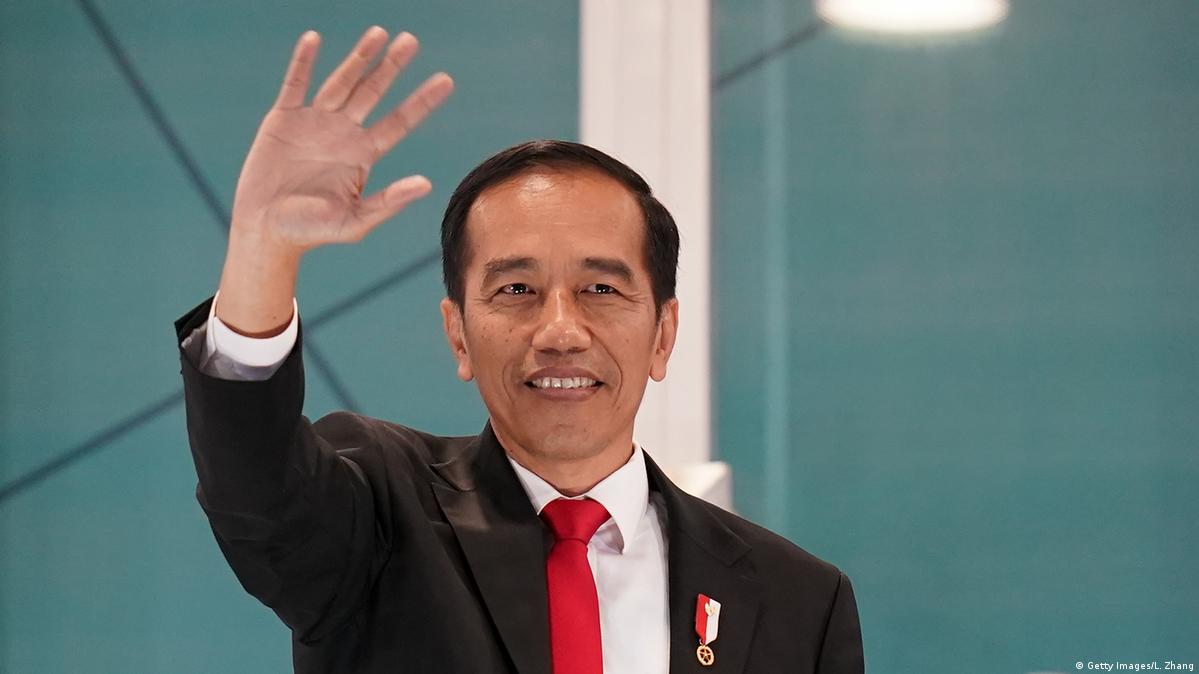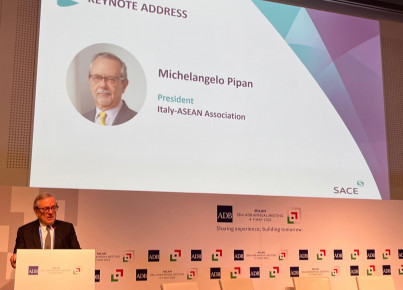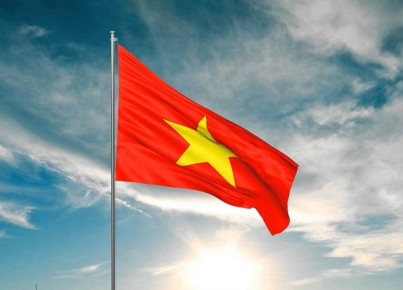Self-made man of humble beginnings, Indonesia's first president without a political dynasty or the military behind him. With only a few months left in his second and final term, Joko Widodo remains wildly popular, and his successor will likely emerge from his entourage. Outstanding story of a leader who embodies the strengths and contradictions of his country
Joko Widodo is almost always referred to by the nickname "Jokowi." Shortening names and titles or giving nicknames is a widespread habit in the spoken Indonesian language, but it seems that the president's nickname was coined by one of his French business partners. Prior to entering politics, Jokowi was involved, with some success, in manufacturing and exporting furniture made from the fine timber of the tropical forests of the Indonesian archipelago. This was, in some ways, the family business, although his father carried it out on a much smaller scale. In fact, Jokowi had been born in the home of a carpenter in Surakarta, a town in Central Java, who sold the furniture he made on the street. After studying forestry engineering, Widodo first worked in a state-owned pulp mill and then opened his own company, joining the trade association. Business did not take off at first, and in the early 1990s, Jokowi was in danger of bankruptcy, but was saved by a loan from a state-owned company. The company manages to grow through exports, mainly to Europe and, in particular, France. In short, Widodo's entrepreneurial success was built on the support of state-owned companies and exports, two elements that would later be central to his economic policy, dubbed Jokowism by some entrepreneurs.
Furniture manufacturers are an influential industry group in Indonesia, and Widodo, president of the association for the city of Surakarta, is ready to enter politics. In 2005, he won the election for mayor of Surakarta, and his administration proved extremely popular due to its tough on crime and promotion of tourism. The successful entrepreneur now mayor, however, does not forget his humble beginnings and often visits the city's slums, where he promotes social housing and access to education. Appreciated policies that Jokowi will replicate on a larger scale in his later posts. His popularity is sky-high, and in 2010 he is re-elected mayor with more than 90 percent of the vote. On the strength of that result, just two years later he aims for the position of governor of Jakarta and is elected. A position he holds for a short time, as in 2014 his party, the PDI-P (Indonesian Democratic Party of Struggle) nominates him as its candidate for the country's presidency. Jokowi's meteoric political career is built on his talent for appearing as a "man of the people" who does not forget his origins, capable of getting things done, and sincerely interested in improving the living conditions of poorer Indonesians.
The PDI-P's choice of Widodo was exceptional for the dynamics of Indonesian politics. The then Jakarta governor was neither a former army officer like his rival, former conservative general Prabowo Subianto, nor the scion of a political dynasty like PDI-P leader and daughter Sukarno Megawati. Before him, all of Indonesia's presidents had belonged to one of two categories, but for Widodo and the PDI-P the anomaly could become the lever with which to lift the party after years of electoral debacles. Jokowi presented himself as a new man, estranged from the establishment and close to the people. Like so many other leaders in the same years, Widodo wins with a populist platform that put the fight against corruption at the center. The election was a triumph, Jokowi beating Prabowo with 53 percent of the vote and repeating the success in 2019, again against Prabowo, with 55 percent. To this day Jokowi remains wildly popular, with approval ratings around 76 percent. It is difficult to hear critical voices against the president, not least because offending him can lead to 18 months in prison, as happened to an 18-year-old Sumatran boy in 2017.
Widodo is indeed a democratically elected leader, willing to relinquish power at the end of his two terms as required by the Constitution, but he is also the leader of a "hybrid" democracy. Power is contestable in elections, but dissent is suppressed when he raises his voice too much or steps out of the groove drawn by the government. Somewhat vague laws against defamation and "blasphemy" have been written during the Widodo administration and are now broadly interpreted to restrict freedom of expression, assembly and association. Another gray page with regard to fundamental rights is a recent and unprecedented assumption of responsibility by Jokowi for certain incidents of violence perpetrated by the Indonesian state in the past. This is only a partial step forward, as the president has been silent about the crimes committed by the military during the occupation of East Timor and the violent repression still perpetrated against West Papuan natives demanding independence from Jakarta. The promise to fight corruption has also remained unfulfilled. Rizal Ramli, a longtime politician and former minister in the first Widodo government, recently wrote in The Diplomat that under Jokowi "the hands of the clock have turned back," as the president's clique has proven to be "horribly corrupt, with huge conflicts of interest." Widodo keeps quiet and lets it be, so as to keep opposing interest groups together and maintain power. Former rival Prabowo has also been co-opted as defense minister.
Despite the fact that corruption is a very serious problem and perceived as such by the public, Indonesia's economy is growing and experiencing no crisis. Jokowism seems to be working and remains popular. Mindful of his personal experience, Widodo sees the country's wealthy state-owned enterprises as a useful tool for guiding its economy and infrastructure toward its goals of economic as well as social development. In this, the president has been successfully assisted by his minister of state-owned enterprises Erick Thohir, an entrepreneur known in Italy for buying and leading Inter Milan for a number of years. Another tenet of Jokowism is the search for new markets and investment abroad. Indonesia recently held the chairmanship of both the G20 and ASEAN, placing great emphasis in both forums on trade and economic growth. And Jokowi has been able to find many investors, especially in China. Beijing's presence in the country has increased greatly, both in investment and in the presence of Chinese workers, a category that is often the victim of violence. This is a somewhat uncomfortable topic for the administration, which has been criticized in the past by the opposition for "selling out" the country to China and is now committed to keeping anti-Chinese sentiment in check.
Although it is difficult to predict who will be Jokowi's successor, he will certainly be a Jokowist in economics. Appearing in continuity with the popular outgoing president will be necessary to emerge from a still crowded pool of contenders. The two most likely names seem to be former rival, now ally, Prabowo and official PDI-P candidate Ganjar Pranowo, governor of Central Java. The two could even ally and run as a ticket, in absolute continuity with the grand coalition supporting Widodo. If Jokowi entered politics without coming from a power dynasty, he is coming out having created one of his own: his sons have already begun to groom themselves, and the eldest son is already mayor of Surakarta, the city from which Widodo's rise began. We will hear more about them. In any case, the fact that the post-Jokowi transition is taking place in a democratic manner demonstrates the strength of Indonesia's democracy, albeit a "hybrid" one. A democracy full of contradictions that required an out-of-the-box politician like Jokowi to lead it: as capable and effective as he was condescending to the corruption and vices of the system.






